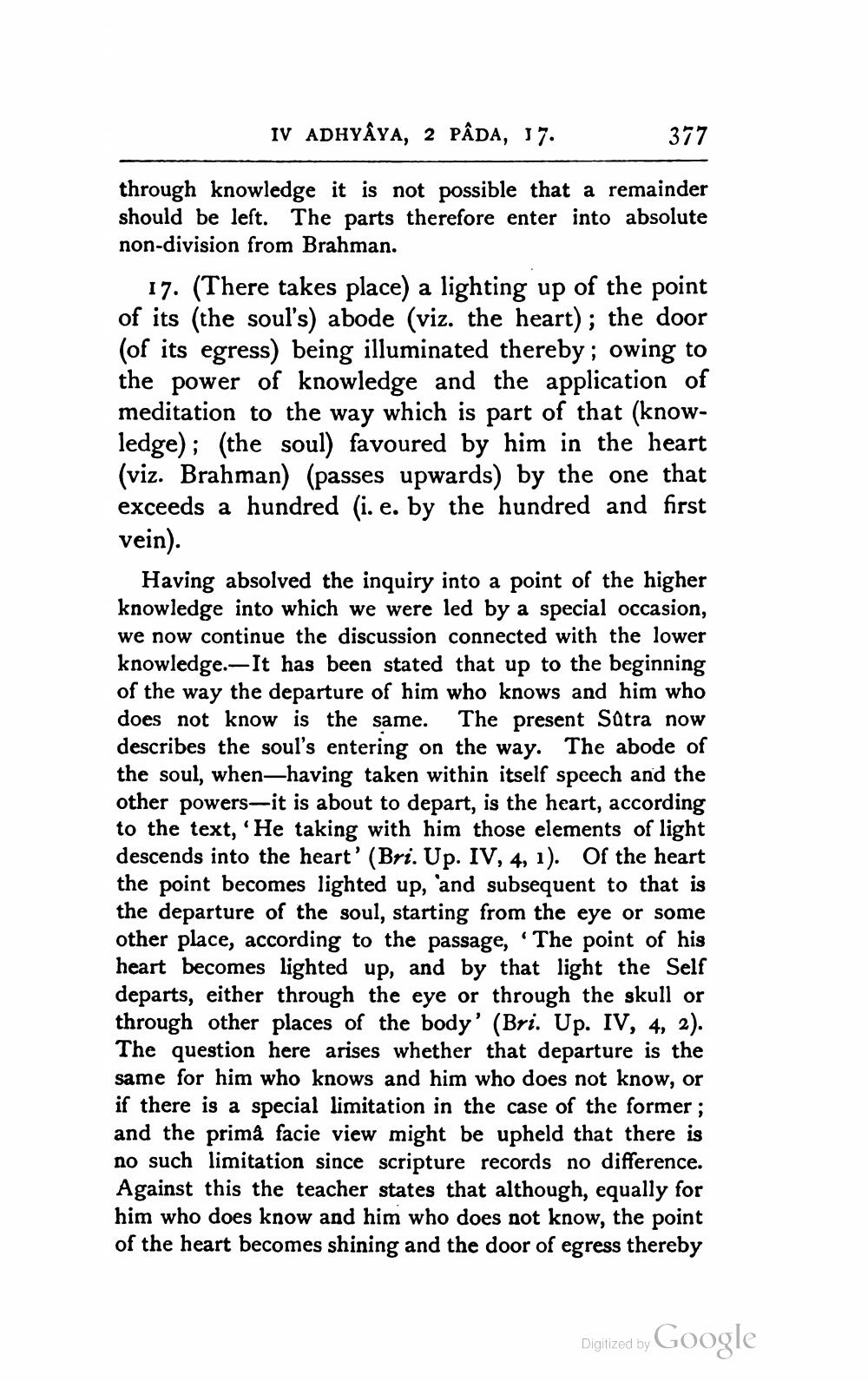________________
IV ADHYAYA, 2 PÂDA, 17.
through knowledge it is not possible that a remainder should be left. The parts therefore enter into absolute non-division from Brahman.
377
17. (There takes place) a lighting up of the point of its (the soul's) abode (viz. the heart); the door (of its egress) being illuminated thereby; owing to the power of knowledge and the application of meditation to the way which is part of that (knowledge); (the soul) favoured by him in the heart (viz. Brahman) (passes upwards) by the one that exceeds a hundred (i. e. by the hundred and first vein).
Having absolved the inquiry into a point of the higher knowledge into which we were led by a special occasion, we now continue the discussion connected with the lower knowledge. It has been stated that up to the beginning of the way the departure of him who knows and him who does not know is the same. The present Sutra now describes the soul's entering on the way. The abode of the soul, when-having taken within itself speech and the other powers-it is about to depart, is the heart, according to the text, 'He taking with him those elements of light descends into the heart' (Bri. Up. IV, 4, 1). Of the heart the point becomes lighted up, and subsequent to that is the departure of the soul, starting from the eye or some other place, according to the passage, 'The point of his heart becomes lighted up, and by that light the Self departs, either through the eye or through the skull or through other places of the body' (Bri. Up. IV, 4, 2). The question here arises whether that departure is the same for him who knows and him who does not know, or if there is a special limitation in the case of the former; and the primâ facie view might be upheld that there is no such limitation since scripture records no difference. Against this the teacher states that although, equally for him who does know and him who does not know, the point of the heart becomes shining and the door of egress thereby
Digitized by Google




